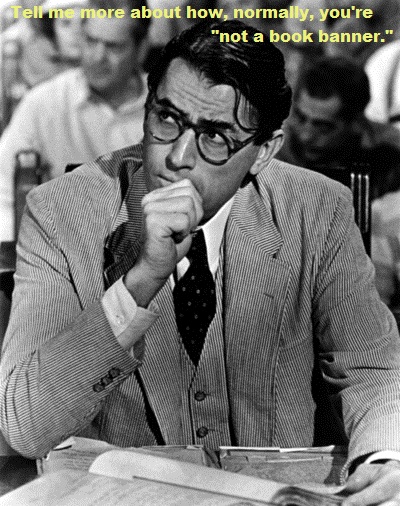In the middle of a unit on Harper Lee’s classic American novel To Kill a Mockingbird, students at Belle Chasse High School in Lousiana were informed they wouldn’t be finishing the book. Apparently, their teachers told them, the book is banned.
Newer teachers in the district were teaching the book, unaware that it was banned from use in 2001. The ban came back into force, however, following new parental complaints.
Today, we sent a letter to the district lending support to the ACLU of Louisiana’s statement alleging the ban violates students’ First Amendment rights. The letter urges them to rescind it as soon as possible. According to school officials, the board will likely be reconsidering the policy in the near future.
“I wasn’t really offended,” freshman Dugan Epperson told news reporters. “It’s not that bad, we’re in high school, we’re getting mature, you know?”
When a ban like this comes up, we often hear a disbelieving chorus: ”Really?? That book??” Yes, To Kill a Mockingbird is a practically unimpeachable classic — a Pulitzer prize winning novel, taught to millions of students. A 1990 study found it was the 5th most taught book in high schools.
But the question should really be, “why ban any book?” Barring access to a book — any book — in a setting where students could be guided to think critically about its themes is counterproductive and short-sighted. Taught with professionalism and perspective, any book is worthy of consideration, even if lesson finds a book’s characters or even the writing itself, wanting.


